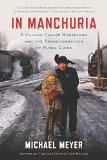Summary | Excerpt | Reviews | Beyond the book | Read-Alikes | Genres & Themes | Author Bio

A Novel
by Yu HuaA bestseller in China, recently short-listed for the Man Asian Literary Prize, and a winner of France’s Prix Courrier International, Brothers is an epic and wildly unhinged black comedy of modern Chinese society running amok.
A bestseller in China, short-listed for the 2009 Man Asian Literary Prize and a winner of France's Prix Courrier International, Brothers is an epic and wildly unhinged black comedy of modern Chinese society running amok.
Here is China as we’ve never seen it, in a sweeping, Rabelaisian panorama of forty years of rough-and-rumble Chinese history that has already scandalized millions of readers in the author’s homeland. Yu Hua, award-winning author of To Live, gives us a surreal tale of two brothers riding the dizzying roller coaster of life in a newly capitalist world. As comically mismatched teenagers, Baldy Li, a sex-obsessed ne’er-do-well, and Song Gang, his bookish, sensitive stepbrother, vow that they will always be brothers--a bond they will struggle to maintain over the years as they weather the ups and downs of rivalry in love and making and losing millions in the new China. Their tribulations play out across a richly populated backdrop that is every bit as vibrant: the rapidly-changing village of Liu Town, full of such lively characters as the self-important Poet Zhao, the craven dentist Yanker Yu, the virginal town beauty (turned madam) Lin Hong, and the simpering vendor Popsicle Wang.
With sly and biting humor, combined with an insightful and compassionate eye for the lives of ordinary people, Yu Hua shows how the madness of the Cultural Revolution has transformed into the equally rabid madness of extreme materialism. Both tragic and absurd by turns, Brothers is a monumental spectacle and a fascinating vision of an extraordinary place and time.
Brothers will not appeal to everyone. The subject matter is unrelentingly coarse; there's not a single human bodily function or body part that doesn't get its fair share of verbiage. (Indeed, the second page of the book relates Baldi Li getting caught looking at women's buttocks at the public latrine, and how his father died when he fell into the cesspit below the toilets while attempting the same action – and that's not nearly as tasteless as some of the other occurrences the author relates in the novel's second half.) The text is liberally sprinkled with obscenities. It is also frequently quite violent. Readers who are not sensitive to such vulgarities, however, will find a rich exploration of current Chinese culture and insight into the factors that influenced the country's evolution to its present state...continued
Full Review
 (700 words)
(700 words)
(Reviewed by Kim Kovacs).
China's Cultural Revolution, which Chairman Mao Zedong formally announced in
1966, was a reaction to his earlier attempt, known as "The Great Leap Forward", to increase China's economic base by moving the country away from its agrarian economy to an industrialized one using the massive supplies of cheap humans rather than expensive imported machines. The Second Five Year Plan, better known as "The Great Leap Forward", was unveiled by Mao in 1958. As a first step, collectives across the countryside were merged into even larger "people's communes" so that by the end of 1958 approximately 25,000 communes with an average of 5,000 households had been set up.
A cornerstone of "The Great Leap Forward" was the creation of ...

If you liked Brothers, try these:

by Heinz Insu Fenkl
Published 2023
A "mesmerizing" (PW, James McBride) "magnificent" (Ha Jin) intergenerational coming-of-age novel set in South Korea—about friendship, belonging, and displacement.

by Michael Meyer
Published 2016
A combination of memoir, contemporary reporting, and historical research, presenting a unique profile of China's legendary northeast territory.
Some books are to be tasted, others to be swallowed, and some to be chewed on and digested.
Click Here to find out who said this, as well as discovering other famous literary quotes!